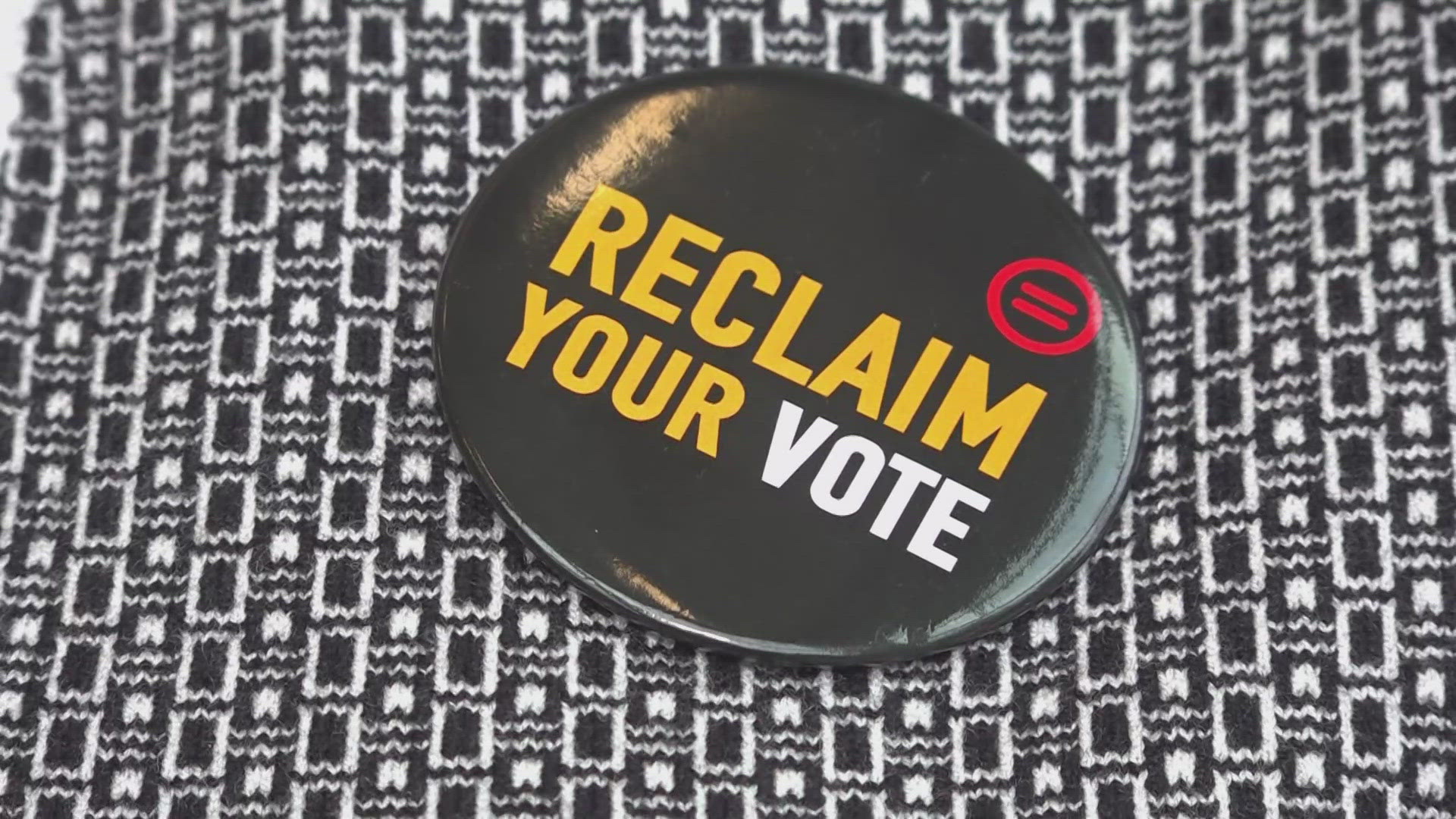KNOXVILLE, Tenn. — Election day is less than three weeks away, but not every Tennessean will be eligible to vote, including people convicted of felonies.
Joy Radice, a University of Tennessee law professor and the College of Law's director of clinical programs, said a new interpretation of state law has made gaining voting rights back even more difficult.
In 2023, a Tennessee Supreme Court Case laid out a two-step process for those convicted of a felony to regain their voting rights. They must receive a pardon or have their full rights of citizenship restored by a Circuit Court on top of meeting administrative requirements related to paying restitution, court costs and current child support payments—if eligible.
Tennessee's coordinator of elections Mark Goins interpreted the law to also mean someone must gain their gun rights back—which he sees as part of a citizen's full rights.
"No one had expected that to happen," Radice said. Prior to this decision, an individual could get their voting rights restored by submitting a certificate of voting restoration without a pardon or court order.
Radice said those with certain types of felony convictions legally can't own a firearm, meaning their full citizenship rights would not include being able to own a gun.
One of the people who recently regained their full citizenship rights is Laura Davenport. She said she was headed down the wrong path for much of her life.
"I fought addiction for several years—got into a lot of trouble in my thirties and forties. On Oct. 1, 2018, I decided to call for help," Davenport said.
After Davenport completed substance abuse and recovery programs, she said she still struggled to move forward because of her criminal past. She contacted the Knoxville Area Urban League after seeing a WBIR story about expunging records.
"I started it in 2023 and I got my voting privileges reinstated and my civil rights reinstated in the summer of 2024," Davenport said.
Radice said in Tennessee it's historically been hard to get voting rights restored.
"Prior to the change in July 2023, many reports ranked us 48th in the country in terms of difficulty in getting your voting rights back. We're the only state that requires you to have paid child support and be up to date on child support. And very few states don't just automatically restore your rights once you've finished your sentence," Radice said.
This new interpretation is increasing the number of people who can't vote. She said state laws are very specific about who is permanently disenfranchised, like those convicted of rape, murder and treason felonies—but adding gun rights to the mix is making that number grow.
Radice says attorneys and legislators across the state have been working to make changes to make this ruling less restrictive and establish citizenship rights. "It's just simply not what the legislature intended when it passed these statutes."
She said she's hopeful because she's heard of some bills being produced in summer study.
"I hope they will come to fruition and get passed this year to make this process less complicated, and to even go back to that original process in 2006 that was created to allow somebody to administratively just restore their right to vote," Radice said.
Radice said although the process to vote has become more difficult, she has seen more people calling in for help getting their voting rights restored.
Davenport said she will be voting for the first time since her 20s on Wednesday—the first day of early voting.
"It's a very hard thing to reach out for help and once you reach out for help, then the ball's in your court and you have to make your own destiny," Davenport said.
The Knoxville Area Urban League will be hosting another expungement clinic on November 6 at Foster Chapel Baptist Church.

